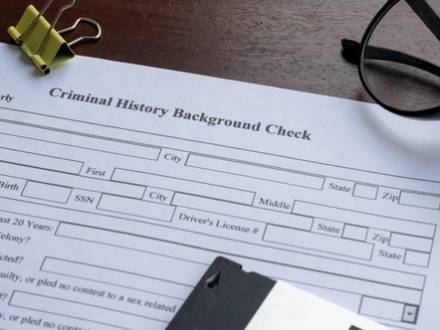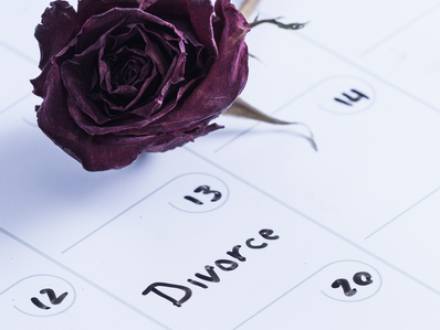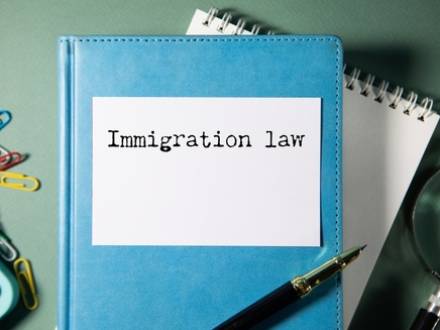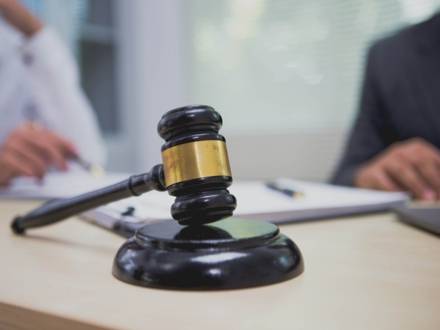Recent Blog Posts
What Crimes Can Never Be Expunged, and What Are the Alternatives?
 Some crimes can never be expunged under Maryland law. Expungement is meant to clear certain records from public view, but it is not available in every criminal offense. Understanding what does and doesn’t qualify can help you plan your next steps.
Some crimes can never be expunged under Maryland law. Expungement is meant to clear certain records from public view, but it is not available in every criminal offense. Understanding what does and doesn’t qualify can help you plan your next steps.
According to the Maryland Administrative Office of the Courts, 46,251 petitions for expungement were filed across the state in a single year. If you are exploring your options in 2026, it is important to know that even when expungement is not possible, other forms of relief may still exist. Our Chevy Chase, MD criminal defense lawyer helps individuals review their eligibility and pursue the strongest path forward.
How Long Does a Divorce Really Take in Virginia?
 In Virginia, a divorce usually takes about six months to over a year, depending on your situation. Virginia has strict separation rules that often control the timeline more than anything else. In 2025, Virginia reported a divorce rate of about 2.7 divorces per 1,000 residents, showing that many families across the state are going through this process each year.
In Virginia, a divorce usually takes about six months to over a year, depending on your situation. Virginia has strict separation rules that often control the timeline more than anything else. In 2025, Virginia reported a divorce rate of about 2.7 divorces per 1,000 residents, showing that many families across the state are going through this process each year.
If you are thinking of getting divorced in 2026, our Chantilly, VA divorce lawyers can help you plan your next steps. Several factors can complicate the process, but an experienced attorney will walk you through it with compassion.
How Long Does a Divorce Usually Take in Virginia?
Most divorces in Virginia take at least six months and often closer to a year or longer. Even when both spouses agree, the law requires a waiting period before the court can finalize the divorce.
Can a Contractor Refuse to Fix Defective Work After Final Payment?
 Many homeowners believe that once contractors are paid in full, they can walk away from the job, even if problems show up later. That is not always true in Maryland. Whether a contractor can refuse to fix defective work after final payment depends on the contract, the type of problem, and how Maryland construction law treats construction work and contractor responsibilities.
Many homeowners believe that once contractors are paid in full, they can walk away from the job, even if problems show up later. That is not always true in Maryland. Whether a contractor can refuse to fix defective work after final payment depends on the contract, the type of problem, and how Maryland construction law treats construction work and contractor responsibilities.
In 2025, federal economic data showed that private residential construction spending in the United States reached about $927 billion. With so much work happening, disagreements over poor workmanship and unfinished repairs are not unusual.
As of 2026, Maryland courts continue to rely on written contracts, basic workmanship standards, and consumer protection laws when resolving contractor disputes. If you are dealing with defective work, our Aspen Hill, MD construction lawyers can help you understand what responsibility may still exist after payment.
Are Stores Responsible for Crimes That Happen in Their Parking Lots in Virginia?
 Crimes in store parking lots can turn an ordinary day into a life-altering experience. Victims may be left dealing with injuries, fear, and unexpected financial strain. The law recognizes that businesses can sometimes be responsible in these cases. Whether they are depends on the specific circumstances. If you or a loved one was hurt in a store parking lot, you may have a viable personal injury claim. Our Kings Park West, VA premises liability lawyers can help.
Crimes in store parking lots can turn an ordinary day into a life-altering experience. Victims may be left dealing with injuries, fear, and unexpected financial strain. The law recognizes that businesses can sometimes be responsible in these cases. Whether they are depends on the specific circumstances. If you or a loved one was hurt in a store parking lot, you may have a viable personal injury claim. Our Kings Park West, VA premises liability lawyers can help.
Can a Store Be Held Liable for Crimes in Its Parking Lot in Virginia?
A store is not automatically responsible for every crime that happens on its property. However, Virginia common law recognizes that business owners owe a duty of care to customers who are lawfully on the premises.
If a store knew, or should have known, that criminal activity was likely to happen in its parking lot and failed to take reasonable steps to reduce that risk, the store may be legally responsible. These cases are often referred to as negligent security claims. The focus is not on who committed the crime, but on whether the store failed to act when risks were known.
How Prosecutorial Misconduct Can Lead to Post-Conviction Relief
 Prosecutorial misconduct refers to actions by a prosecutor that interfere with a defendant’s right to a fair trial. Post-conviction relief allows you to ask the court to review your case and correct serious legal errors. If you have questions about how the prosecutor in your criminal case conducted themselves, our North Bethesda, MD post-conviction relief lawyers can explain your options.
Prosecutorial misconduct refers to actions by a prosecutor that interfere with a defendant’s right to a fair trial. Post-conviction relief allows you to ask the court to review your case and correct serious legal errors. If you have questions about how the prosecutor in your criminal case conducted themselves, our North Bethesda, MD post-conviction relief lawyers can explain your options.
What Is Prosecutorial Misconduct in Maryland?
Prosecutorial misconduct occurs when a prosecutor does something that goes against legal or ethical rules during a criminal case. A prosecutor’s role is to present evidence and seek justice while protecting the rights of the accused. Under Maryland Rule 19-303.8, prosecutors have a duty to share evidence that may help the defense, avoid misleading statements, and make sure that every defendant receives a fair process.
Resolving Property Line Disputes Between Virginia Neighbors
 Property line disagreements can turn friendly neighbors into frustrated adversaries. These disputes often start small. Anything from a new fence, a driveway, or a tree planted too close to the boundary can quickly grow into serious legal conflict. Virginia law offers ways to help you protect your land and avoid unnecessary conflict. If you are facing one of these issues, the experienced Fairfax, VA property dispute lawyers at Salvado Law Offices can help you reach a fair resolution.
Property line disagreements can turn friendly neighbors into frustrated adversaries. These disputes often start small. Anything from a new fence, a driveway, or a tree planted too close to the boundary can quickly grow into serious legal conflict. Virginia law offers ways to help you protect your land and avoid unnecessary conflict. If you are facing one of these issues, the experienced Fairfax, VA property dispute lawyers at Salvado Law Offices can help you reach a fair resolution.
Common Examples of Property Line Disputes in Virginia
Property line disputes often begin when one neighbor believes the other is using land that does not belong to them. These situations can involve:
-
Fences or walls built past the surveyed boundary
-
Driveways, sheds, or landscaping extending onto another’s property
What To Do If a Contractor Damages Your Property
 When you hire someone to work on your home, their work should improve your property, not create more work. However, damage can happen during a renovation or repairs. When it does, you should know what steps are available to you under construction law.
When you hire someone to work on your home, their work should improve your property, not create more work. However, damage can happen during a renovation or repairs. When it does, you should know what steps are available to you under construction law.
You have legal rights, and taking the right steps early can help you protect your home and your finances. If you need support, our North Bethesda, MD construction lawyers can guide you through the legalities and help you build a strong case.
How Do I Know the Contractor Is Responsible for the Damage?
Contractors are responsible for completing work carefully and according to professional standards. Damage may happen through accidents, carelessness, or failure to follow building rules. The first step is to look at when the damage appeared and whether it is connected directly to the contractor’s work.
Can the National Guard Arrest Undocumented Immigrants?
 In August 2025, the United States National Guard was deployed to Washington, D.C. under federal direction. Officials said the goal was to address rising crime in the Capital. Around the same time, ICE activity in D.C. neighborhoods became more visible. Officers started making arrests in areas such as Mount Pleasant and Petworth. These events drew national attention and caused concern among immigrant families about how enforcement actions might affect them.
In August 2025, the United States National Guard was deployed to Washington, D.C. under federal direction. Officials said the goal was to address rising crime in the Capital. Around the same time, ICE activity in D.C. neighborhoods became more visible. Officers started making arrests in areas such as Mount Pleasant and Petworth. These events drew national attention and caused concern among immigrant families about how enforcement actions might affect them.
The Guard’s authority is limited under federal law. If you have concerns about your immigration status or deportation, you need to know your rights and what to do if you are approached by law enforcement or military personnel. An Oakton, VA immigration attorney at Salvado Law Offices can help.
Is a Criminal Appeal the Same as a Post-Conviction Petition in Maryland?
 It can be easy to confuse a criminal appeal and a post-conviction petition. Both offer a way to challenge your conviction, but the purposes and processes are different. If you have questions about filing either after a criminal conviction, you should speak with an attorney. An experienced Bethesda, MD criminal defense lawyer can help you understand these options and guide you through the process.
It can be easy to confuse a criminal appeal and a post-conviction petition. Both offer a way to challenge your conviction, but the purposes and processes are different. If you have questions about filing either after a criminal conviction, you should speak with an attorney. An experienced Bethesda, MD criminal defense lawyer can help you understand these options and guide you through the process.
What Is a Criminal Appeal in Maryland?
A criminal appeal in Maryland is a formal request to a higher court to review a lower court's decision after a conviction or guilty plea. It is based on the claim that legal errors were made during the original trial. The goal is to find out if something went wrong that made your trial unfair. Appeals are not a chance to show new evidence. Instead, the court reviews what already happened during the trial.
Can I Get a Protective Order During Divorce Proceedings in Virginia?
 Virginia law allows protective orders during divorce cases if a judge believes someone needs protection. These orders offer you and your family immediate safety while the court decides on bigger, sometimes heated, issues in your divorce. A protective order can also help set clear boundaries so conflict does not worsen. Our McLean, VA protective order lawyers will guide you through the process of petitioning for a protective order during divorce.
Virginia law allows protective orders during divorce cases if a judge believes someone needs protection. These orders offer you and your family immediate safety while the court decides on bigger, sometimes heated, issues in your divorce. A protective order can also help set clear boundaries so conflict does not worsen. Our McLean, VA protective order lawyers will guide you through the process of petitioning for a protective order during divorce.
How Do Protective Orders Work in Virginia?
Virginia law provides three types of protective orders, each serving a different purpose and length of time:
-
Emergency protective orders last up to 72 hours. They are often issued after an arrest to give immediate safety until the courts are open and able to review the situation.











